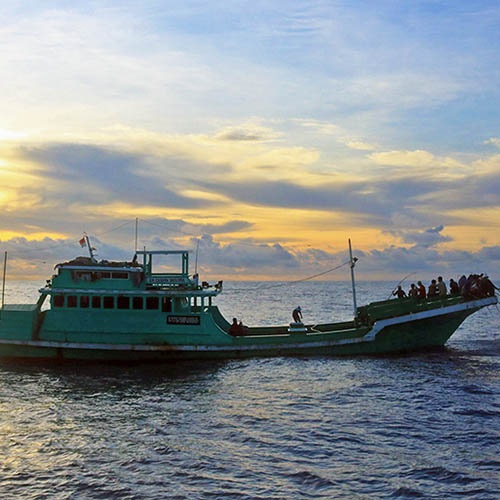Dynamic fisheries target species whose population size can vary greatly over time and with changing environmental conditions.
The MSC Fisheries Standard requires that dynamic fisheries are managed in a precautionary way, with robust harvest strategies that take into account the variability and uncertainty of dynamic fish stocks.
Some stocks experience large fluctuations in population size year-on-year, including small pelagic species such as herring. These fluctuations are typically a result of environmental factors including temperature changes or nutrient upwellings in the ocean.
Variability of such stocks means that some fisheries experience changes to their MSC certification throughout the five-year lifespan of a certificate (sometimes called 'yo-yo' certification). The uncertainty of being suspended is a problem for fisheries as it affects the supply chain and ultimately those who will buy their seafood.
How has our Standard changed?
The new version of our Standard includes new guidance that makes our Standard more accessible to fisheries harvesting dynamic stocks.
Guidance on adapting to change
The new guidance includes useful examples of robust management systems that could be appropriate to large fluctuations in stock size. This includes in-season monitoring that provides real-time data to help managers adapt and respond to changes by closing certain areas to fishing.
New guidance also covers how long-term climate changes should be considered so that fisheries can incorporate 'buffers' into their plans. One such buffer would be managing stocks around a target range for biomass instead of a single point. This would mean suspension from the MSC program is not an immediate risk if the stock population falls.
Guidance on applying harvest strategies
The new guidance clarifies how our Standard is applicable to a wider variety of species types and fishery types. These additions provide clarity to assessors on how some of these requirements around harvest strategies should be interpreted and applied in certain situations. It means more robust assessments from CABs to ensure environmentally driven stocks are being managed using a precautionary approach.
Fisheries Standard 3.0 implementation
Developing our policies
In 2022, we published Version 3.0 of the MSC Fisheries Standard following the most comprehensive review to date.
The development of the Standard follows public consultation on key aspects of the review, including a 60-day public review of the draft Standard and all associated documents.
We also commissioned independent research and carried out data analysis and impact assessments to determine whether proposals are feasible and deliver our stated intentions. We also sought advice and input from our governance bodies throughout the process.
Follow the links below to find out more about the different inputs which contributed to the development of our new guidance for assessing dynamic fisheries:
- Impact Assessment – Dynamic fisheries (Nov 2021)
- Consultation summary report – Proposed revised MSC Fisheries Standard (May 2022)

MSC Fisheries Standard version 3.0
An overview of the changes made to our Standard.

Fisheries Program Documents
The MSC Fisheries Standard and General Certification Requirements.

.tmb-labelhome.jpg?Status=Master&Culture=en&sfvrsn=39466bd9_3)